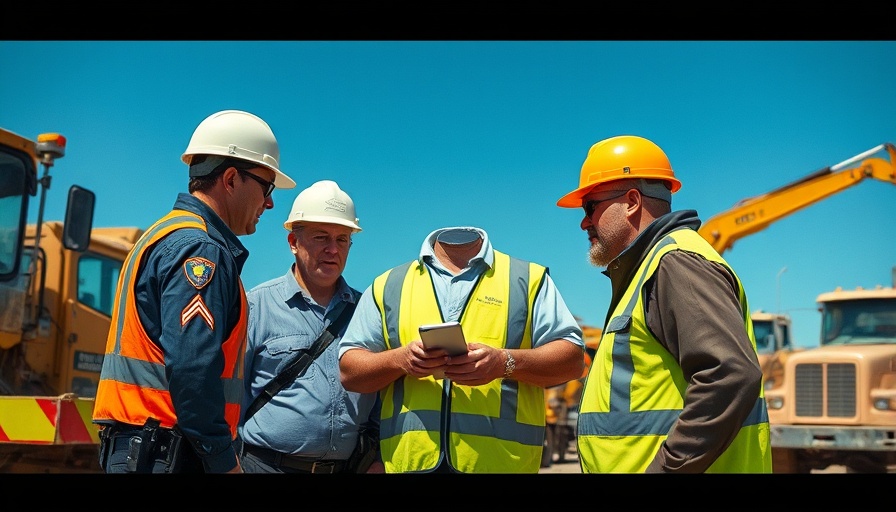
Understanding the Impact of Immigration Raids on Construction Projects
The recent immigration raid at a school construction site in Gulf Shores, Alabama, which resulted in the arrest of approximately 37 individuals, highlights the broader implications of such enforcement actions within the construction industry. Conducted on June 24 by the Gulf of America Homeland Security Task Force, the raid is part of a larger trend of increased inspections and arrests across various construction sites nationwide, with over 200 arrests reported since mid-May.
This particular raid comes amidst a significant construction project—the new $131 million Gulf Shores High School, set to be completed in 2026. The project is managed by Rabren General Contractors, who have pledged their full cooperation with the investigation while refraining from further comment. This coordination exemplifies how construction firms must navigate complex regulatory landscapes to ensure compliance and protect their workforce.
The Ripple Effects of Federal Enforcement Actions
Construction sites often employ a diverse labor force, and immigration raids can create significant disruptions. Federal and local law enforcement's presence not only impacts the workers involved but can also lead to delays, increased project costs, and strained relations within the contractor community. The industry is already grappling with labor shortages; such enforcement can further exacerbate these challenges, leading to extended timelines for project completion and increased operational costs for developers and contractors.
Moreover, the sensitivity surrounding these raids influences public perception and can generate local protests, as observed during a previous raid in Los Angeles. This underscores the necessity for construction firms to establish clear policies regarding worker compliance and legal status, and to foster a supportive environment that emphasizes health and safety amidst ongoing scrutiny.
Anticipating Future Trends in Construction Compliance
With the federal government intensifying its focus on immigration enforcement, construction companies must become adept at navigating this evolving landscape. Legal experts suggest that businesses proactively implement measures to verify employment eligibility, providing training for onsite managers to recognize and respond to potential enforcement actions effectively.
Furthermore, embracing technology can play a pivotal role in addressing compliance challenges. Advanced Building Information Modeling (BIM) tools, for instance, can enhance project transparency and oversight, ultimately safeguarding both the workforce and the project's integrity. By integrating such innovative solutions, construction firms can mitigate risks associated with labor compliance, ensuring a smooth operation while contributing to a more ethical and responsible industry.
Conclusion: A Call for Responsible Practices in Construction
As the industry faces an increasingly complex regulatory environment, construction businesses and developers must prioritize compliance and worker welfare. The immigration raid in Gulf Shores stands as a reminder of the intersecting issues of labor management and legal accountability in construction. By embracing best practices and leveraging technology, the industry can drive forward while fostering a culture that values both productivity and ethical responsibility.
 Add Row
Add Row  Add
Add 




Write A Comment